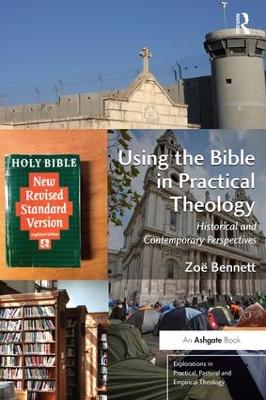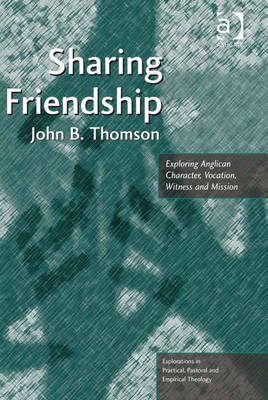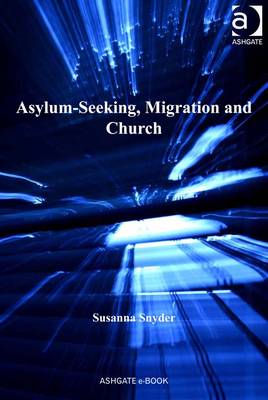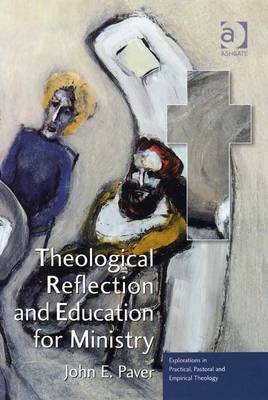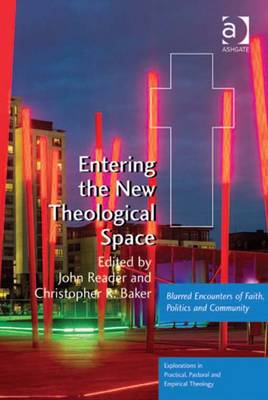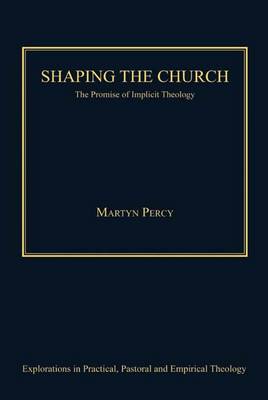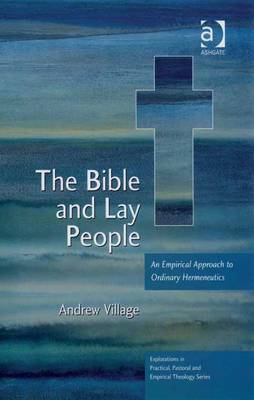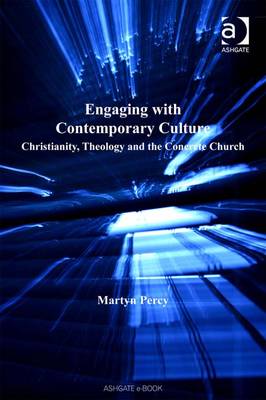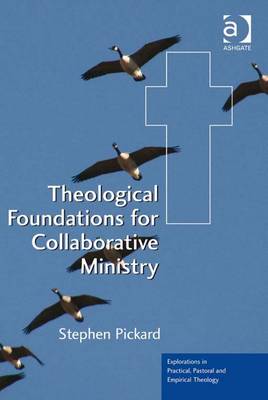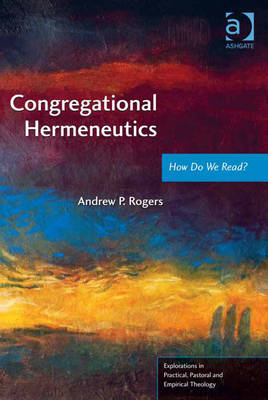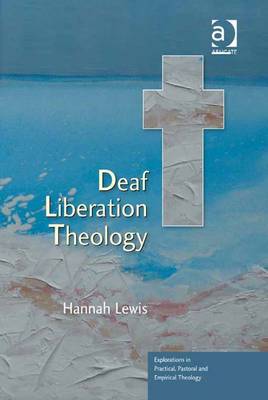Explorations in Practical, Pastoral and Empirical Theology
12 total works
Sharing Friendship represents a post-liberal approach to ecclesiology and theology generated out of the history, practices and traditions of the Anglican Church. Drawing on the theological ethics of Stanley Hauerwas, this book explores the way friendship for the stranger emerges from contextually grounded reflection and conversations with contemporary Anglican theologians within the English tradition, including John Milbank, Oliver O'Donovan, Rowan Williams, Daniel Hardy and Anthony Thiselton.
Avoiding abstract definitions of character, mission or friendship, John Thomson explores how the history of the English Church reflects a theology of friendship and how discipleship in the New Testament, the performance of worship, and the shape of Anglican ecclesiology are congruent with such a theology. The book concludes by rooting the theme of sharing friendship within the self-emptying kenotic performance of Jesus' mission, and looks at challenges to the character of contemporary Anglican ecclesiology represented by secularization and globalization as well as by arguments over appropriate new initiatives such as Fresh Expressions.
Asylum-Seeking, Migration and Church addresses one of the most pressing issues confronting contemporary society. How are we to engage with migrants? Drawing on studies of church engagement with asylum seekers in the UK and critical immigration and refugee issues in North America, Snyder presents an extended theological reflection on both the issue of asylum-seeking and the fears of established populations surrounding immigration.
This book outlines ways in which churches are currently supporting asylum seekers, encouraging closer engagement with people seen as 'other' and more thoughtful responses to newcomers. Creatively exploring biblical and theological traditions surrounding the 'stranger', Snyder argues that as well as practising a vision of inclusive community churches would do well to engage with established population fears. Trends in global migration and the dynamics of fear and hostility surrounding immigration are critically and creatively explored throughout the book. Inviting more complex, nuanced responses to asylum seekers and immigrants, this book offers invaluable insights to those interested in Christian ethics, practical theology, social work, mission and faith and social action, as well as those working in the field of migration.
A major and continuing problem for theological education and the practice of Christian ministry is how to best achieve a genuine integration between theory and practice, theology and experience. The key claim of this book is that theological reflection, beginning with experience, is a method of integration and that pastoral supervision is a vehicle for theological reflection. In establishing this claim, John Paver demonstrates that the model and method have potential to be a catalyst for reform within theological colleges and seminaries. Three different theological reflection models are developed and critiqued in this book, and their capacity to be developed in particular contexts is explored. This book does not stop at ministry, cultural and personal integration, but is bold enough to make recommendations for structural integration within the theological institution.
Entering the New Theological Space
This book presents theological reflections on the changing nature of church mission and Christian identity within a theology of 'blurred encounter' - a physical, social, political and spiritual space where once solid hierarchies and patterns are giving way to more fluid and in many ways unsettling exchanges. The issues raised and dynamics explored apply to all socially-produced space, thus tending to 'blur' that most fundamental of theological categories - namely urban vs. rural theology.
Engaging in a sharper way with some of the helpful but inevitably broad-brush conclusions raised by recent church-based reports (Mission-shaped Church, Faithful Cities), the authors examine some of the practical and theological implications of this research for the issue of effective management and therefore church leadership generally. Speaking to practitioners in the field of practical theology as well as those engaged in theological and ministerial training, key voices encompass dimensions of power and conflict, and identify some of the present and future opportunities and challenges to church/faith-based engagement and leadership arising from blurred encounters.
Contributors - practitioners and theorists - cover a wide spectrum of interdisciplinary professional contexts and academic/denominational interests. Contributors include: John Atherton, John Reader, Helen Cameron, Martyn Percy, Malcolm Brown, Karen Lord, Clare McBeath and Margaret Goodall.
This book seeks to dynamically alter the way that theologians, ecclesiologists, students of religion and ministers look at the church. Taking the ideas of composition, formation and vocation as basic ecclesial categories, Martyn Percy explores how apparently innocent and incidental material is in fact highly significant for the shaping of theological and ecclesiological horizons.
The Introduction sets the tone, with a meditation on how the apparently ordinary scent of a country church can be redolent with meaning, setting the tone of expectation in relation to subsequent worship. This book is not, however, simply about reading meanings into events, ideas, conversations and contexts. Rather, it sets out to faithfully interpret much of the material that surrounds us, yet is often taken for granted, or more usually unnoticed. The book is an invitation to involve the scholar or minister, paying close and patient attention to beliefs, language, artefacts, rituals, practices and other material - all of which are constitutive for ecclesial life and theological identity.
There are many books about how people ought to interpret the Bible. This book is about how people in churches actually interpret the Bible, and why they interpret it in the way that they do. Based on a study of Anglicans in the Church of England, it explores the interaction of belief, personality, experience and context and sheds new light on the way that texts interact with readers. The author shows how the results of such study can begin to shape an empirically-based theology of scripture. This unique study approaches reader-centred criticism and the theology of scripture from a completely new angle, and will be of interest to both scholars and those who use the Bible in churches.
Theology and the churches are often considered to be at the margins of contemporary culture, frequently struggling for identity and attention. In this important new book Martyn Percy argues that a rich form of practical theological engagement is needed if the churches are to comprehend their situation in the modern world, thereby enabling them to engage more confidently with society. Drawing on a range of perspectives in the religion-culture debate, and from case studies in the USA and Europe, the book explores the myriad of ways in which culture is now shaping contemporary Christianity, and how vital an appreciation of this dynamic is for the self-understanding of churches and theology.
This book explores the crucial and continuing contribution that theology can make to public life, in an era that is often perceived to be dominated by consumerism and secularity. It will especially appeal to scholars of contemporary religion, practical theologians, and all those who are engaged in ministerial formation.
This book examines the theological foundations of a collaborative approach to Christian ministry. The discovery that Christians are members 'one of another' creates energy and joy in ministry and empowers the Church in an age of mission.
Outlining the present challenges for ministry, Stephen Pickard offers an historical perspective on ministry over the last century; develops a theory of collaborative ministry based on a dialogue between theology and science; and explores some implications of collaborative ministry for lay and ordained people of the Church.
This book breaks new ground in its theory of collaborative ministry through a dialogue with the sciences of emergence. It also offers fresh insights on important texts in ministry; relationships between Christology, pneumatology and ministry; a relational ontology of ministry; episcopacy, ecumenism, ordination vows and wisdom for team ministry.
Despite many churches claiming that the Bible is highly significant for their doctrine and practice, questions about how we read the Bible are rarely made explicit. Based on ethnographic research in English churches, Congregational Hermeneutics explores this dissonance and moves beyond descriptions to propose ways of enriching hermeneutical practices in congregations. Characterised as hermeneutical apprenticeship, this is not just a matter of learning certain skills, but of cultivating hermeneutical virtues such as faithfulness, community, humility, confidence and courage. These virtues are given substance through looking at four broad themes that emerge from the analysis of congregational hermeneutics - tradition, practices, epistemology and mediation. Concluding with what hermeneutical apprenticeship might look like in practice, this book is constructively theological about what churches actually do with the Bible, and will be of interest to scholars, students and practitioners.
Following years of theology of deafness based on the premise that Deaf people are simply people who cannot hear, this book breaks new ground. Presenting a new approach to Deaf people, theology and the Church, this book enables Deaf people who see themselves as members of a minority group to formulate their own theology rooted in their own history and culture.
Deconstructing the theology and practice of the Church, Hannah Lewis shows how the Church unconsciously oppresses Deaf people through its view of them as people who cannot hear. Lewis reclaims Deaf perspectives on Church history, examines how an essentially visual Deaf culture can relate to the written text of the Bible and asks 'Can Jesus sign?' This book pulls together all these strands to consider how worship can be truly liberating, truly a place for Deaf people to celebrate who they are before God.
